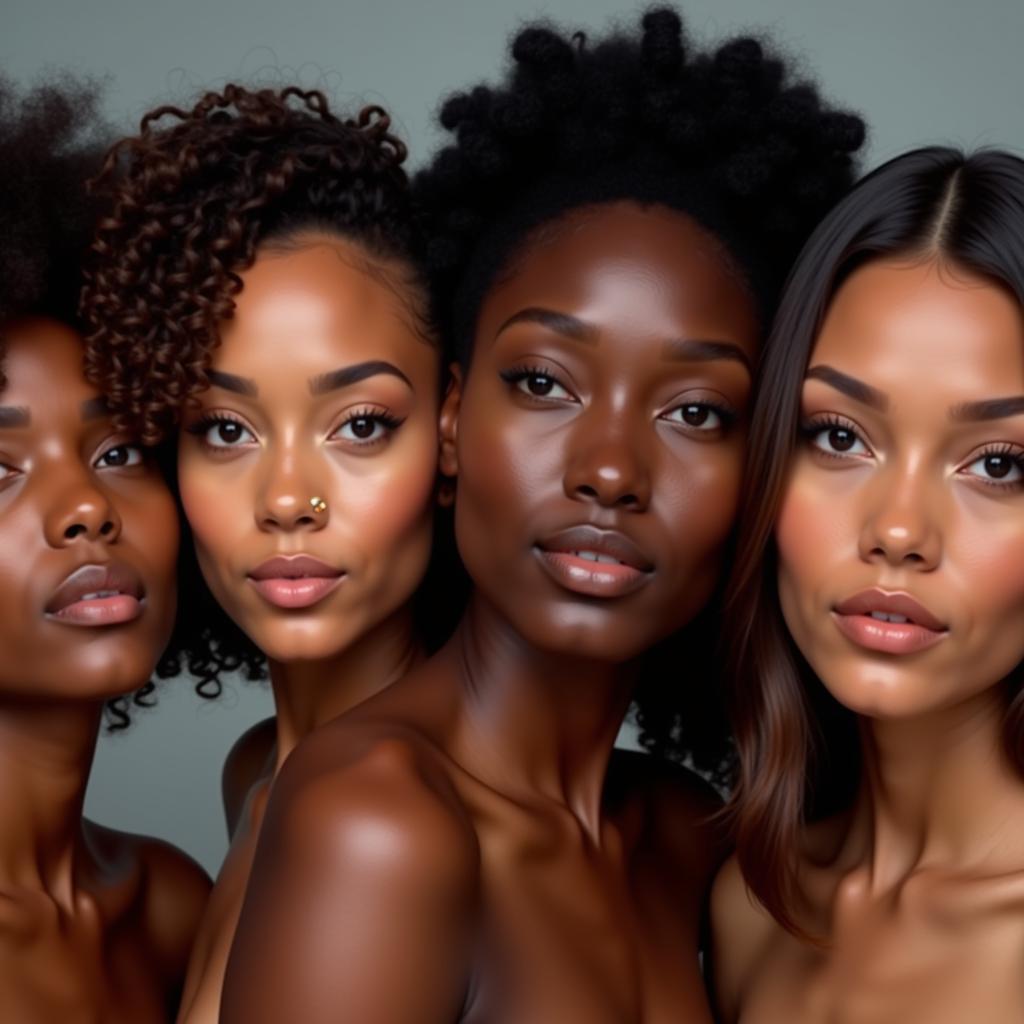The Complexities of African American Whitening Cream
The use of African American Whitening Cream is a complex issue rooted in colorism and societal pressures. It’s a topic that deserves careful examination, understanding the historical context, cultural influences, and potential health risks.
Unpacking the Demand for Skin Lightening Creams
The desire for lighter skin amongst some African Americans has a long and painful history tied to colonialism and slavery, where lighter skin was often associated with privilege and status. This internalized racism has persisted through generations, manifesting in the continued use of skin lightening products. What drives this demand? It’s a multifaceted issue interwoven with cultural beauty standards, media representation, and even personal experiences of discrimination.
Many individuals feel pressured to conform to a Eurocentric ideal of beauty, often perpetuated by media portrayals that equate lighter skin with attractiveness and success. This can lead to feelings of inadequacy and a desire to alter one’s appearance to fit in or gain acceptance.
 African American Women and Beauty Standards
African American Women and Beauty Standards
The Illusion of Beauty: Debunking Myths about Skin Whitening
While some may believe that lighter skin offers a path to greater opportunities or social acceptance, it’s crucial to debunk the myths surrounding skin whitening. These creams often contain harmful chemicals like hydroquinone and mercury, which can lead to long-term skin damage, including ochronosis, a condition characterized by blue-black discoloration of the skin.
Furthermore, the pursuit of lighter skin can be psychologically damaging, perpetuating feelings of self-hate and reinforcing the idea that one’s natural appearance is not good enough. True beauty comes from self-acceptance and embracing one’s unique features.
Dr. Anika Nkosi, a dermatologist specializing in ethnic skin care in Atlanta, Georgia, says, “Skin lightening creams offer a false promise. True beauty radiates from within, and healthy skin, regardless of its shade, is the foundation of that beauty.”
Embracing Natural Beauty and Challenging Colorism
Challenging the deeply ingrained colorism that fuels the demand for African American whitening cream requires a multi-pronged approach. We need to promote diverse representation in media, celebrate all shades of beauty, and encourage open conversations about the psychological impact of colorism. Education is key to understanding the historical roots of this issue and empowering individuals to embrace their natural beauty.
This includes promoting self-love and encouraging individuals to find beauty in their unique features, rather than striving to conform to unrealistic and potentially harmful beauty standards.
Dr. Nkosi adds, “We need to shift the narrative. It’s about celebrating the rich diversity of skin tones within the African American community and promoting healthy skin care practices that prioritize skin health over artificial lightening.”
Alternatives to Skin Whitening: Healthy Skin Care Practices
Instead of resorting to harmful skin lightening creams, there are numerous safe and effective ways to achieve healthy, glowing skin. A consistent skincare routine that includes cleansing, moisturizing, and using sunscreen is essential. Consulting a dermatologist can provide personalized advice and recommendations based on individual skin type and concerns.
Focus on nourishing your skin from the inside out with a balanced diet rich in fruits, vegetables, and antioxidants. Adequate hydration is also crucial for maintaining healthy skin.
Conclusion: Choosing Self-Acceptance over Skin Lightening
The use of African American whitening cream is a complex issue with deep historical roots. While societal pressures and ingrained colorism can influence choices, it’s essential to prioritize self-acceptance and healthy skin care practices over artificial lightening. Embracing our natural beauty, in all its diverse shades, is a powerful step towards challenging harmful beauty standards and promoting self-love within the African American community.
FAQ
-
Are skin whitening creams safe? No, many skin whitening creams contain harmful chemicals that can cause long-term skin damage.
-
What are the alternatives to skin whitening? Focus on a healthy skincare routine, including cleansing, moisturizing, and sun protection. Consult a dermatologist for personalized advice.
-
What is colorism? Colorism is prejudice or discrimination against individuals with a darker skin tone, typically among people of the same racial or ethnic group.
-
How can I challenge colorism? Promote diverse representation, celebrate all shades of beauty, and engage in open conversations about the impact of colorism.
-
Where can I find more information about healthy skincare for African American skin? Consult a dermatologist or seek resources from reputable organizations specializing in ethnic skincare.
-
What are the long-term effects of using skin whitening creams? Long-term use can lead to skin damage, including ochronosis, hyperpigmentation, and thinning of the skin.
-
How can I build self-esteem and embrace my natural skin tone? Focus on self-love, challenge negative beauty standards, and surround yourself with positive influences.
Further Exploration:
Looking for more information on related topics? Check out these articles on our website:
- The History of Colorism in the African American Community
- Building Self-Esteem and Embracing Your Natural Beauty
- Harmful Chemicals Found in Skin Lightening Products
Need assistance? Contact us 24/7: Phone: +255768904061, Email: [email protected], or visit us at Mbarali DC Mawindi, Kangaga, Tanzania.




